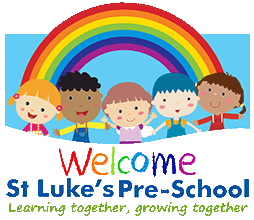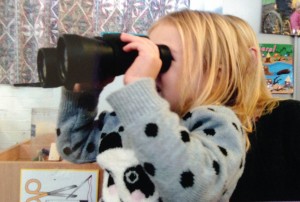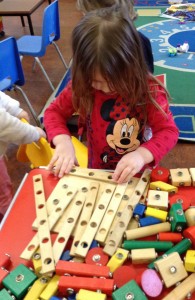Pre-School Vision and Values
Our vision.
- Giving children the wish to learn: our principal expectation for the children in our care is to feel happy and safe, as well as developing a lifelong passion for learning.
Our legacy.
- Stimulated and Taught each child.
- Listened, Understood, Knew them. Had high Expectations of them & were Sharply focussed on their individual needs.
- Parents’ input & Reflection on our practice, lead to Excellent education & care.
- Safe, Caring, Healthy setting, achieving the best Outcomes. That’s Our Legacy.
How we will achieve the above:
- Provide high quality care and education for the children
- Provide a safe, stimulating and challenging learning environment which includes the Early Years Foundation Stage* (EYFS) framework.
- Create a friendly, supportive atmosphere where children, their families and the staff feel valued and happy.
- Work in partnership with parents to encourage the children to learn and develop.
- Add to the life of the local community.
- Promote equality and value diversity.
- Ensure a firm foundation for continuous improvement and lifelong learning for all.
- Use of a key worker system with continuity of care to enable observation of children’s needs and progress on an individual basis.
- Work with other agencies to meet children’s specific needs – therapists including speech and language, paediatricians etc.
- Provide staff with development opportunities and recognise this as an integral part of continuous pre-school improvement.
As a member of The Pre-School Learning Alliance, we support its mission statement to:
“Help children to succeed
Create the childcare that families need
Build learning communities.”
The Early Years Foundation Stage
Children follow the Early Years Foundation Stage (EYFS) curriculum. This is divided into three ‘Prime Areas’ and four ‘Specific Areas’ of learning.
Prime Areas:
- Personal, Social & Emotional Development (PSED): Making relationships, Sense of self and Understanding emotions.
- Physical Development (PD): Moving and handling and Health & self-care.
- Communication & Language (CL): Listening & attention, Understanding & Speaking
Specific Areas:
- Literacy (L): Reading and Writing
- Mathematics (M) including numbers and shape, space & measure …
- Understanding the World (UW): People & communities, The world and Technology
- Expressive Arts & Design (EAD): Creating with materials and Being imaginative and expressive.
We incorporate the more exploratory and creative areas of learning into our curriculum, alongside a ‘structured’ academic programme – including phonics, reading and writing and Mathematical Development.
Young children learn best when they are motivated through playful learning experiences and are given opportunities to direct their own learning both indoors and within outdoor environments.
Our pre-school is well resourced and organised in order to spark curious minds, encourage sustained shared thinking, promote fundamental British values and cater for individual learning styles.
Fundamental British Values are actively promoted at St. Luke’s through our pre-school curriculum, pre-school policies and the ethos of the pre-school.
Democracy – To begin to develop our children’s respect for democracy and support for participation in the democratic process: making decisions together.
As part of the focus on self-confidence and self-awareness as cited in PSED:
- we encourage children to see their role in the bigger picture, encouraging children to know their views count, value each other’s views and values and talk about their feelings, for example when they do or do not need help. When appropriate demonstrate democracy in action, for example, children sharing views on what the theme of their role play area could be or song or story to listen to with a show of hands.
- we support the decisions that children make and provide activities that involve turn-taking, sharing and collaboration. Children are given opportunities to develop enquiring minds in an atmosphere where questions are valued.
The Rule of Law – To begin to develop respect and understanding for the need for rules and laws to enable people to function together in a community and society as a whole
As part of the focus on managing feelings and behaviour:
- we ensure that children understand their own and others’ behaviour and its consequences, and learn to distinguish right from wrong.
- Staff collaborate with children to create the rules and the codes of behaviour, for example, to agree the rules about tidying up and ensure that all children understand rules apply to everyone.
Individual Liberty – To begin to support and respect the liberties within the law: freedom for all.
As part of the focus on self-confidence & self-awareness and people & communities as cited in PSED and UW:
- Children develop a positive sense of themselves. Staff provide opportunities for children to develop their self-knowledge, self-esteem and increase their confidence in their own abilities, for example through allowing children to take risks on an obstacle course, mixing colours, talking about their experiences and learning.
- Staff encourage a range of experiences that allow children to explore the language of feelings and responsibility, reflect on their differences and understand we are free to have different opinions, for example on having a favourite colour or on activities and toys.
Mutual Respect – To begin to develop mutual respect: treating others as you want to be treated.
Tolerance of those of different faiths & beliefs – To begin to develop respect and tolerance of those with different faiths and beliefs:
As part of the focus on people & communities, managing feelings & behaviour and making relationships as cited in PSED and UW:
- we create an ethos of inclusivity and tolerance where views, faiths, cultures and races are valued and children are engaged with the wider community visiting the local Sikh temple for example or celebrating Chinese New Year.
- Children acquire a tolerance and appreciation of and respect for their own and other cultures; know about similarities and differences between themselves and others and among families, faiths, communities, cultures and traditions and share and discuss practices, celebrations and experiences.
- Staff encourage and explain the importance of tolerant behaviours such as sharing and respecting other’s opinions.
- Staff promote diverse attitudes and challenge stereotypes, for example, sharing stories that reflect and value the diversity of children’s experiences and providing resources and activities that challenge gender, cultural and racial stereotyping.


